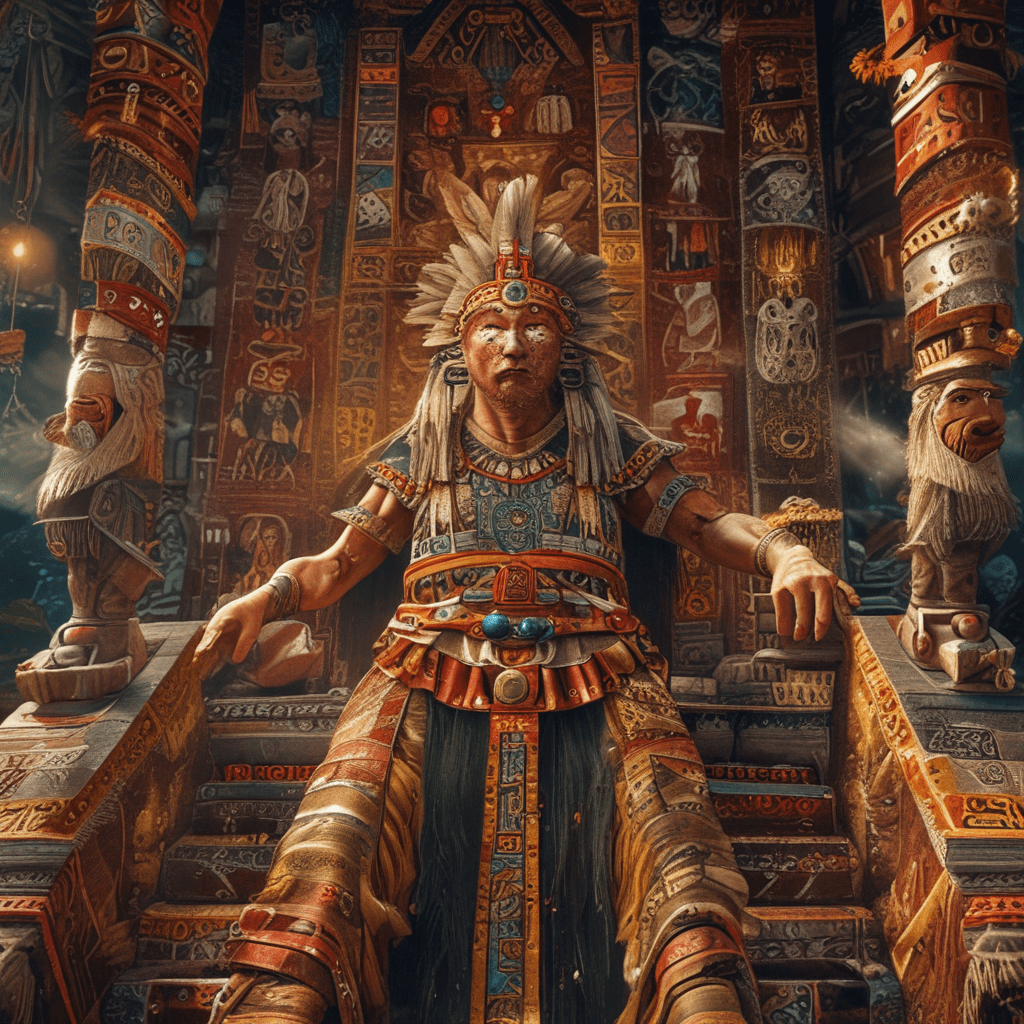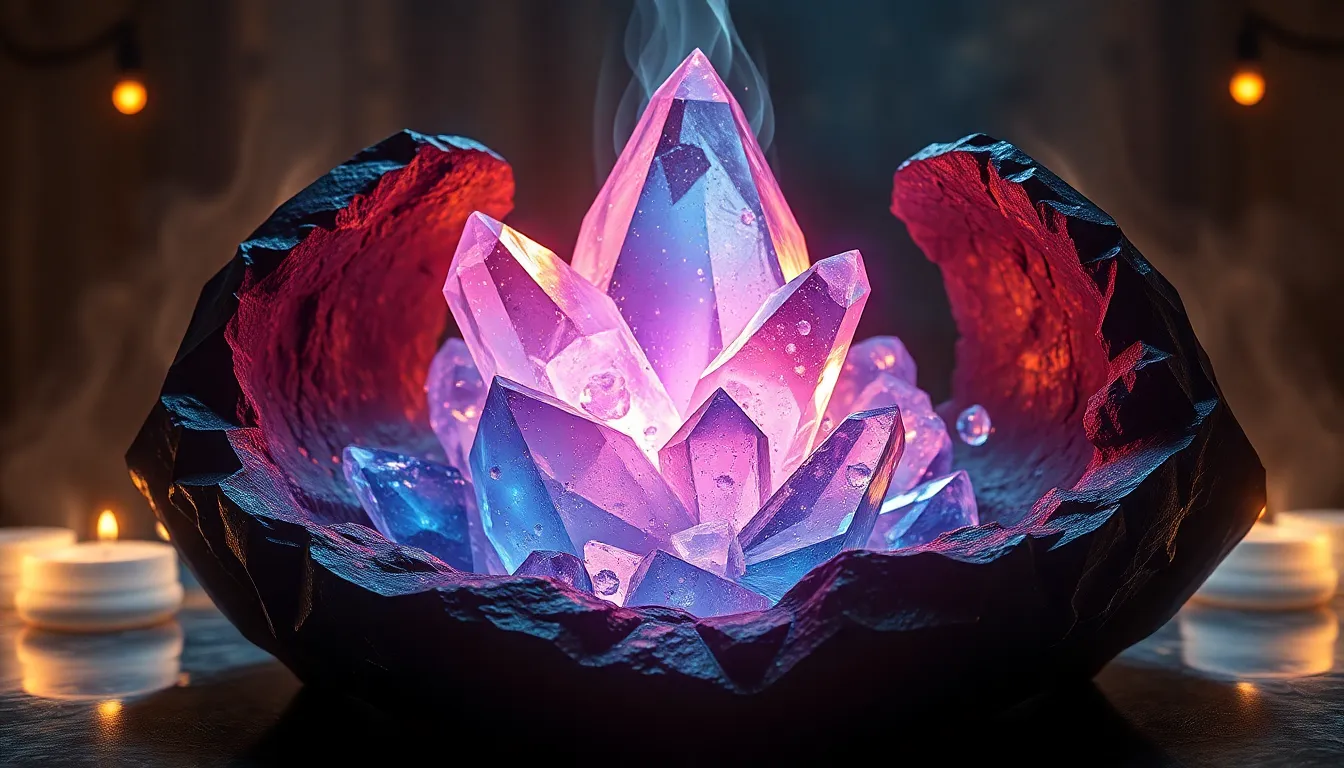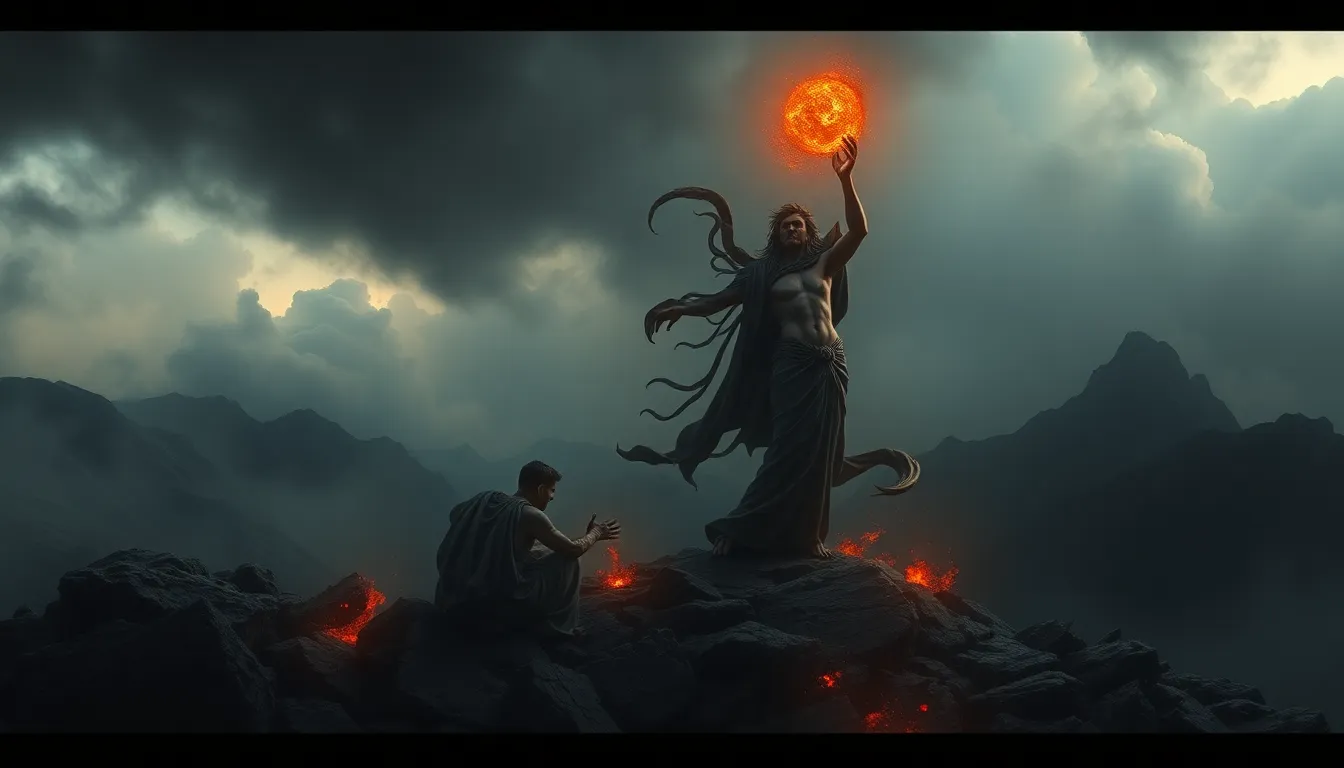Warriors of Myth: The Most Dramatic Battles Uncovered!
Introduction: The Allure of Mythical Warfare
Throughout history, battles have been a central theme in mythology, serving as key events that define the characters and cultures involved. These epic confrontations not only showcase the valor and strength of the warriors but also reflect the values, beliefs, and struggles of their societies. From the ancient tales of Gilgamesh to the grand narratives of the Mahabharata, mythical warfare shapes cultural narratives and continues to resonate with audiences today.
The Epic of Gilgamesh: The Battle of Enkidu
In the ancient Mesopotamian epic, “The Epic of Gilgamesh,” the conflict between Gilgamesh, the king of Uruk, and Enkidu, a wild man created by the gods, serves as a pivotal moment. Their battle begins as a contest of strength but evolves into a deep friendship that explores themes of companionship and mortality.
Their initial confrontation is fierce, highlighting the raw power of both characters. However, it is through their struggle that they learn to respect one another, ultimately leading to a bond that transcends their differences.
This battle symbolizes the human experience of friendship, loss, and the inevitable acceptance of mortality, making it a cornerstone of the narrative.
Homer’s Iliad: The Trojan War and the Wrath of Achilles
One of the most famous battles in mythology is the Trojan War, as depicted in Homer’s “Iliad.” This epic poem details the conflict between the Greeks and the Trojans, sparked by the abduction of Helen. Key battles, such as the duel between Paris and Menelaus, showcase the valor and heroism of the warriors involved.
The wrath of Achilles, the greatest Greek warrior, plays a significant role in the unfolding events. His anger leads to devastating consequences for both sides, illustrating the impact of personal emotions on collective conflict.
Divine intervention also markedly influences the war, with gods and goddesses taking sides, showcasing the belief that fate and divine will are intertwined with human actions.
Norse Mythology: The Clash of the Gods in Ragnarok
Ragnarok, the apocalyptic battle in Norse mythology, represents the ultimate clash between gods and giants. This cataclysmic event, foreseen to bring about the end of the world, is marked by fierce combat and the fall of many gods, including Odin and Thor.
The symbolism of fate is prevalent, as the Norse believed that destiny is inescapable. Valor is celebrated, as warriors are destined to fight bravely until their end. Ragnarok embodies the cyclical nature of life and death, emphasizing the importance of courage in the face of inevitable doom.
The Mahabharata: The Great War of Kurukshetra
The “Mahabharata” presents one of the most significant battles in Indian mythology: the Kurukshetra War. This epic conflict involves two factions of a royal family, the Pandavas and the Kauravas, and it explores deep moral dilemmas faced by the warriors.
As the battle unfolds, characters like Arjuna grapple with the ethics of fighting against their own kin. The teachings of Krishna, who serves as Arjuna’s charioteer, highlight concepts of duty (dharma) and righteousness, making the narrative not just a tale of warfare, but a philosophical exploration of right and wrong.
Arthurian Legends: The Battle of Camlann
In the legendary tales of King Arthur, the Battle of Camlann signifies the tragic end of Arthur’s reign. This confrontation is marked by themes of loyalty, betrayal, and the quest for glory, reflecting the complexities of human relationships.
- Arthur faces the treachery of his nephew, Mordred.
- The battle signifies the downfall of Camelot and the ideals it represents.
- It encapsulates the tragic heroism of Arthur, who fights valiantly despite knowing the odds.
The narrative of Camlann serves as a poignant reminder of the fragility of honor and the consequences of betrayal.
Chinese Mythology: The Battle of the Gods in the Investiture of the Gods
The “Investiture of the Gods” is a classic Chinese tale that features epic battles between deities and mortals. These confrontations are not only physical but also metaphysical, representing the struggle between good and evil, as well as the quest for power.
Key battles include:
- The conflict between the Jade Emperor and the rebellious forces.
- Famous figures like Nezha and Jiang Ziya displaying heroic feats.
These stories have significantly influenced Chinese folklore and culture, embedding themes of loyalty, sacrifice, and the cosmic order into the societal fabric.
Celtic Mythology: The Táin Bó Cúailnge and the Heroic Feats of Cú Chulainn
The “Táin Bó Cúailnge” is a seminal work in Celtic mythology, recounting the exploits of Cú Chulainn, a young warrior of immense prowess. His battles against the armies of Connacht showcase his heroic feats and the ideals of honor and individualism.
Cú Chulainn’s legendary status is cemented through his unwavering bravery and skill, often fighting alone against overwhelming odds. His story emphasizes:
- The importance of personal honor and reputation.
- The concept of fate and destiny in shaping a hero’s journey.
His battles reflect the values of Celtic society and continue to inspire tales of heroism.
The Role of Women in Mythical Battles: Valkyries and Warrior Queens
In contrast to the male-dominated narratives, women in mythology also play crucial roles in battles. Valkyries in Norse mythology, for example, are warrior maidens who choose those who may die and those who may live in battles.
Additionally, historical figures such as Boudica of the Iceni and the legendary Queen Medb of Connacht illustrate the influential roles women have held in warfare.
This examination of female figures in warfare reveals:
- The complexity of gender roles in ancient societies.
- The depiction of women as both nurturers and warriors, challenging traditional norms.
Conclusion: The Enduring Legacy of Mythical Battles
The dramatic battles of mythology not only entertain but also shape contemporary views on conflict, heroism, and morality. These stories transcend time, offering insights into human nature and the eternal struggle between good and evil.
As we preserve these narratives, we ensure that future generations can reflect on their significance and learn from the timeless lessons embedded within them. The warriors of myth continue to inspire, reminding us of the power of courage, loyalty, and the relentless pursuit of honor.



